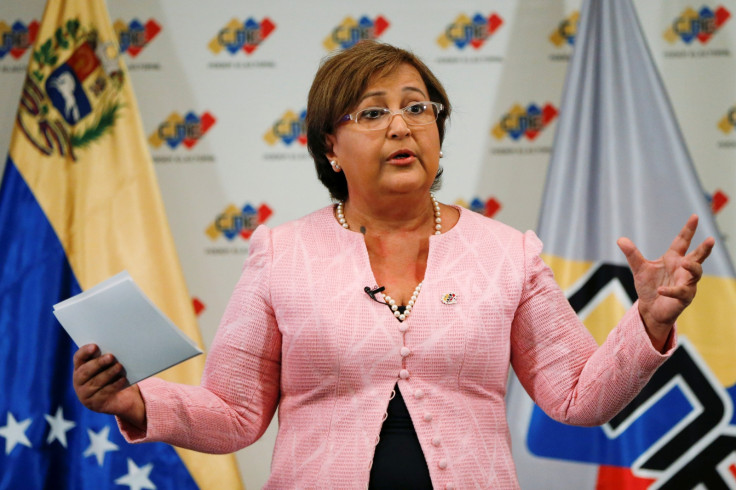Venezuela announces schedule for recall referendum but opposition irked
If the recall referendum is not held this year, there is very little likelihood of a presidential re-election.
Electoral officials in Venezuela have unveiled a timetable for the recall referendum against President Nicolas Maduro. The schedule has received disapproval from the opposition as it is thought to have delayed the voting long enough for Maduro to remain in office irrespective of the result.
Tibisay Lucena, president of the National Elections Council, said on Tuesday (10 August) that the opposition could collect the required number of signatures only in late October, much to their annoyance. Critics of Maduro's socialist regime will need four million people to sign to start the plebiscite against the president.
If the opposition succeeds in securing the signatures, the election officials would then take nearly a month to confirm them and another three months to hold the referendum, which would probably push the voting to early February, Associated Press reported.
The timing is said to play a key role in the process as the opposition alliance is expected to have an edge over Maduro if the recall vote happens by this year. Polls indicate the government would lose the referendum. If the recall vote takes place after 10 January 2017, it would not trigger a presidential election, but would see Vice President Aristóbulo Istúriz serving out the president's term that ends in early 2019. This means the Socialist Party would remain in power with Maduro's currency controls and price policies continuing. In June, Maduro refused to hold a referendum to recall him before next year.
The once oil-rich country's economy is on the brink of a collapse, with high inflation rates and slump in oil prices, which has turned the country's economic crisis into a humanitarian disaster. Tens of thousands of homes were without electricity for days. Acute shortage of food and medicine supplies left many on the streets looking for leftover food in garbage piles. The country has seen looting and protests over the worsening situation.
The electoral office's announcement is reported to trigger intense tensions in a highly polarised country.
An analyst at the Washington-based Eurasia Group, Risa Grais-Targow, said: "The government is concerned about increasingly tense social dynamics and rising international pressure, so it will continue to do the bare minimum to move the process forward, rather than halt it outright," the news agency reported.

The opposition successfully gathered 1% of voters' signatures during the first phase of the recall effort. Its leader Henrique Capriles said delaying of the recall could push the country to breaking point. He has vowed to take to the streets against the October timeline and to force the vote by this year.
"The elections officials know that closing the tiny window of democratic change that we still have puts the country in a very dangerous place. They know that they have to obey the constitution," Capriles said at a news conference.
© Copyright IBTimes 2025. All rights reserved.





















